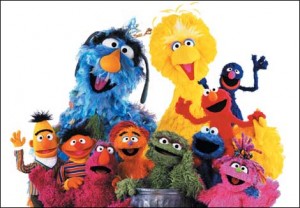PBS as “political target”
When Mitt Romney vowed to cut government funding for the Corporation for Public Broadcasting during Wednesday night’s presidential debate, PBS chief Paula Kerger says she “just about fell off the sofa” out of shock.
Romney’s remarks – and in particular his decision to single out the beloved Big Bird – sparked an immediate uproar on social media. And on Thursday, PBS issued an unusually strongly worded statement in response to the attack. “Governor Romney does not understand the value the American people place on public broadcasting and the outstanding return on investment the system delivers to our nation” – it read.
But Kerger and Big Bird’s millions of fans shouldn’t have been that surprised by Romney’s pledge – The candidate is merely the latest in a long line of politicians and pundits who’ve turned the Corporation for Public Broadcasting, which distributes money to both PBS and NPR, into a political punching bag.
The US public broadcaster, PBS, said it was “very disappointed” to become a “political target” during Wednesday’s presidential debate, after Mitt Romney said he would cut federal funding to the channel.
In a statement PBS said Romney “does not understand the value American people place on public broadcasting”. Earlier on Thursday Paula Kerger (chief executive of PBS) said Romney’s debate pledge to stop the channel’s subsidy was a “stunning moment”.
Romney’s comments sparked immediate criticism from some quarters – especially from fans of the channel’s show Sesame Street – with ‘Save Big Bird’ trending online and a parody @FiredBigBird Twitter account garnering some 28.000 followers before being suspended. PBS later purchased advertising space on Twitter to defend itself from Romney’s claims.
The funding issue arose around halfway through the first presidential debate, which was hosted by PBS and moderated by Jim Lehrer, with Romney expressing dissatisfaction with the broadcaster’s funding.
“I’m going to stop other things. I like PBS, I love Big Bird. Actually I like you, too. But … I’m not going to keep on spending money on things to borrow money from China to pay for [it]” – Romney said.
Former PBS anchor Jim Lehrer says a debate moderator should be like a baseball umpire — get out of the way and let the candidates play. That philosophy may have compounded his troubles during the first presidential debate between Barack Obama and Mitt Romney as he tried and failed to stay out of the spotlight, an increasingly impossible dream for a moderator in the age of social media.
Even before Wednesday night’s debate ended, Twitter was ablaze with criticism of Lehrer for losing control of it and not being sharp in his questions. The candidates frequently bulled past Lehrer’s efforts to hold them to time limits.
Lehrer was travelling on Thursday and was unavailable for comment, a spokeswoman said. His defenders said he was trying to make a new format work and there’s no shame in letting candidates try to engage each other directly.
“It’s a very, very, very difficult job” – said Frank Sesno, a former CNN Washington bureau chief and professor at George Washington University.
Moderators can be criticized for not doing enough or doing too much by being forceful in interrupting candidates and showy in their questions – he said.
Moderators are selected by the Commission on Presidential Debates, which has sponsored the forums since 1988. Candy Crowley (of CNN) and Bob Schieffer (of CBS News) will moderate the next two Obama-Romney debates, with Martha Raddatz (of ABC News) handling the vice-presidential debate between Joe Biden and Paul Ryan.
Commission Co-chairman Paul Fahrenkopf told the Poynter think-tank recently that the commission looks primarily toward experienced TV journalists for the moderator role. He said it seeks a moderator who is comfortable having someone shout instructions in an earpiece, is fair and balanced and “does not have an ego.”
